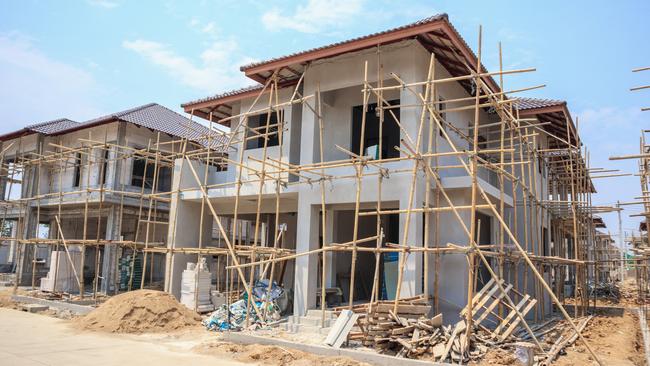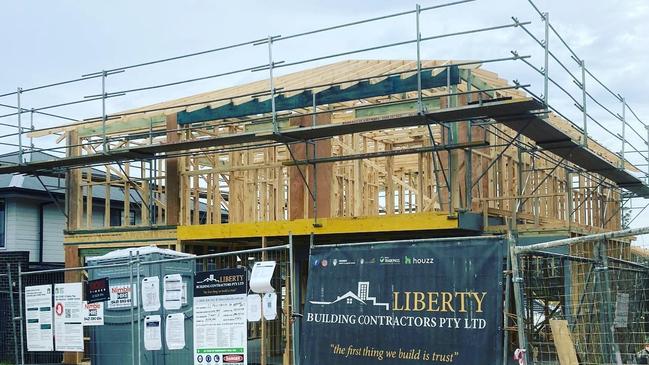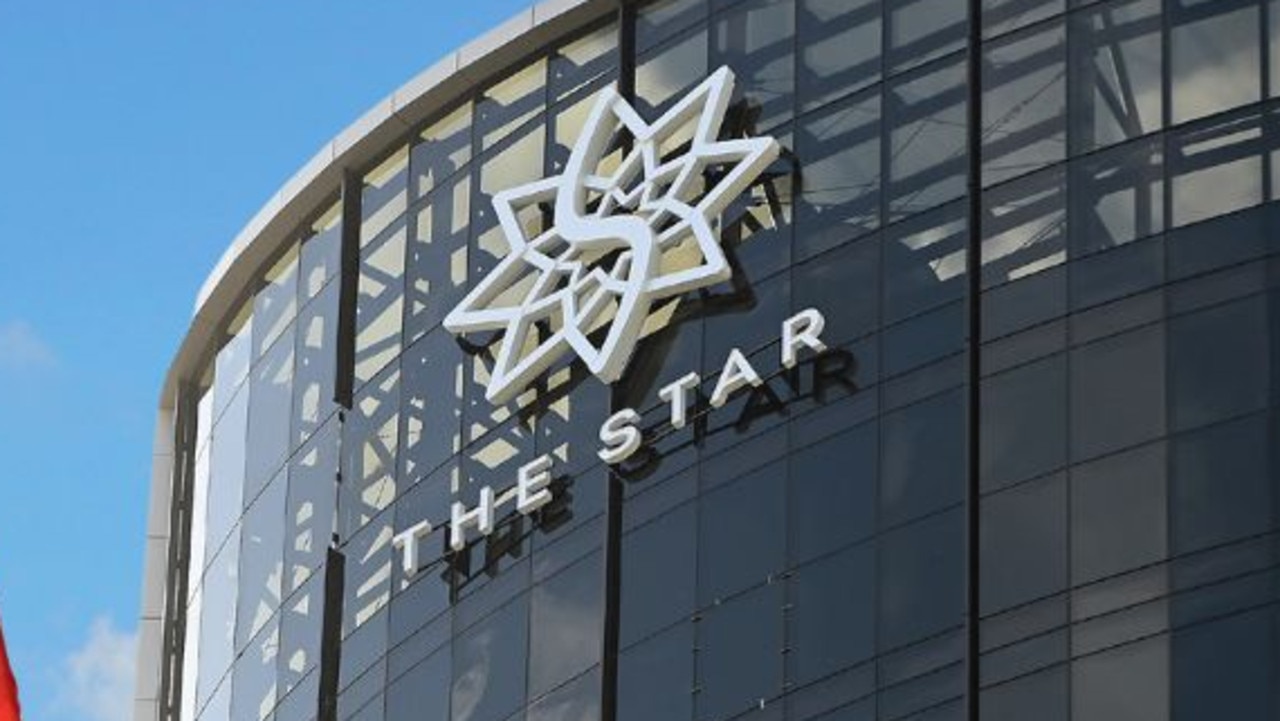Australian insolvencies roar in new financial year as construction sector shows signs of easing
A cocktail of economic pressures that wiped out thousands of builders is easing this fiscal year as cost of living factors hurt a rapidly growing number of hospitality venues.

Business
Don't miss out on the headlines from Business. Followed categories will be added to My News.
A tsunami of higher building costs, supply shortages and post pandemic labour issues that wiped out thousands of construction firms has started to show signs of stabilisation, with the number of business failures rapidly easing as a record number of hospitality operators close.
While construction businesses remained the main contributor to a record start to a financial year for insolvency appointments across Australia, the sector’s annual increase is significantly less than the overall average.
New data from the Australian Securities & Investments Commission shows construction insolvency appointments rose 11.2 per cent to 328 in July, compared to the total national increase of 44.8 per cent to 1238.
Insolvency appointments between August 1 and August 25 for construction have totalled 206, which put it on track to come in lower than 308 record in August 2023 — the first time since the pandemic a corresponding period has been down.
Business Reset director and restructuring practitioner Jarvis Archer says that while construction insolvencies continued to make up the lion share of appointments, the growth rate has dramatically slowed in recent months.

“This makes sense as construction prices have stabilised, most fix-price contracts impacted by Covid have worked their way through and builders are now passing high costs on,” Mr Archer said.
Accommodation and food services insolvency appointments rose faster than any other sector. The number of collapses skyrocketed by 137 per cent to a record 249, while retail jumped more than 32.
Hospitality was already up 28 per cent from August 2023 with one week left to report.
Mr Archer said accommodation and food services has become a horror story as cost of living and inflationary pressures cripple more and more operators.
“On the revenue side, numbers have dropped and customers are spending less. While on the expenses side, minimum wage increases in 2023 and 2024, supplier price hikes and unsympathetic landlords are leaving some owners with no option but to trade on indefinitely with hope their only strategy, or hand the keys back to minimise further losses,” he said.

Victoria’s second-largest home builder AHB Group has reported that conditions were much better for construction firms, according to co-founder Pasquale Garofalo. The company said builders went bust through no fault of their own due to a tsunami of factors.
“Conditions have certainly improved from where we were this time last year, and the cost of materials is not rising at the rates we have seen in the past few years. This is helping to create a little bit of breathing space,” he said.
“It was unfortunate that, due to the pressures of the marketplace, the impact was significant enough to lead to a number of builders collapsing. We were fortunate enough to navigate through this period and grow the business by managing some of the external pressures with strict financial discipline, and this is something we continue to work on every day.”
Mr Garofalo said his company had adapted to the new environment by working with land developers and exploring new opportunities such as land-lease, NDIS and affordable housing deals.

A top Sydney building company is among the biggest construction firms to collapse into liquidation this financial year, owing more than $1m to creditors. Liberty Building Contractors says rising inflation, crippling supply chain costs and lack of government support are among key factors resulting in the long-running company being placed into liquidation
Altus Group Asia Pacific development advisory head Niall McSweeney told The Australian that the construction sector was supported by a stabilisation in the cost of materials, which was helping to offset pressure on wages.
“We’re seeing a lot of demand for structural timber and the materials like that falling, and therefore prices are stabilising, or actually pulling back in some cases. This is being helped by the fact that building approvals are at the lowest level in 12 years,” he said.
“As infrastructure comes off a little in the coming year or so, it’ll free up some of the labour and take further heat out of the construction market.”
It comes as analysis by Altus shows that material prices remain stable in Australia, although copper has risen in response to demand from energy transition and data centre projects.
Steel prices dropped to their lowest level since 2016 due to low demand, notably from China.
Higher costs had resulted in building approvals declining to their lowest level in nearly 12 years, continuing a downward trend, with just 13,237 approvals recorded over the quarter. Industry figures have told The Australian that fewer workers was helping to create a more sustainable construction sector overall.
Originally published as Australian insolvencies roar in new financial year as construction sector shows signs of easing



